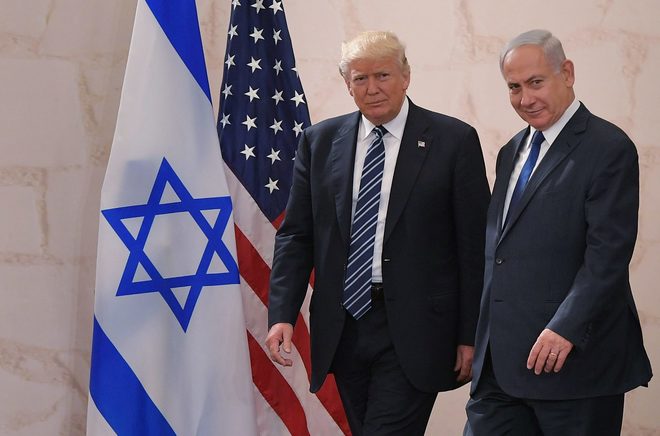
The foreign strategy of Trump’s administration continues to cause confusion and uncertainty in the international community, as was revealed during Trump’s first trip abroad, which took him to Saudi Arabia and Israel. He did not demonstrate diplomatic talent in either of the two countries, instead resolving issues as if he were dealing with merely commercial matters in which there are no political or ethical implications or a defense of Western values. In contrast to what other presidents, particularly Obama, have done, in Riyadh, Trump made it clear by signing a $110,000 million contract for the sale of arms, that he does not intend to give lessons to anyone, and that his interest was in the search for partners that share our objectives. In this, he forgets that the demand for respectful politics with human rights and democracy is an essential part of traditional American foreign politics.
It is obvious this attitude can be very effective in doing business, but diplomacy is much more complex and depends on international balances that require stability and trust between the powers involved. The same president who intends to ban the entry of immigrants from certain Muslim countries, and who has repeatedly stated that “Islam hates us,” defended an alliance of leading Islamic leaders to combat jihadi terrorism. He declared that Islam is one of the world’s “biggest faiths,” and he did so in a country that, like Saudi Arabia, maintains a regime that governs with one of the most radical interpretations of the Quran, such as Wahhabism – a source of instability in the area due to its bitter struggle against Shiism, especially in Yemen.
On the other hand, not even Rouhani’s overwhelming electoral victory in Iran, which guarantees a certain openness of Islamic theocracy, has loosened Trump’s anti-Iranian discourse, which contrasts with the facts. It is true Trump has recently vetoed several Iranian businessmen, but he has so far respected the conditions of the anti-nuclear program signed between Iran and the Obama administration that managed to implicate the Islamic Republic in the fight against the Islamic State in Syria and Iraq. Last Monday, his Israeli counterpart, Benjamin Netanyahu, assured Trump in his visit to Jerusalem that Iran will never have nuclear weapons and that the “terrible” agreement of 2015 has only allowed the enrichment and strengthening of the ayatollahs’ regime.
But the Israeli cabinet, which publicly celebrated Trump’s victory in November and the end of the Obama era, could not be fully satisfied with him, as he has troublesome conflicting relations. Trump has not fulfilled his promise to recognize the capital of Jerusalem by moving the headquarters of the American embassy there. Furthermore, he has rejected the creation of new settlements in the West Bank and he has met in Bethlehem with Palestinian President Mahmoud Abbas. Netanyahu also views the sale of arms to Saudi Arabia suspiciously, especially the F-15’s, as it reinforces Riyadh’s hegemony over the airspace in the Gulf. Despite this, Trump made several symbolic gestures, such as visiting the Wailing Wall and betting on, without specifying how, peace between Israelis and Palestinians, while maintaining ambiguity about the existence of two states.
Adding a sense of insecurity among his partners in the area, Trump threatened OPEC, in particular Saudi Arabia, which aims to control the oil market. It is true that according to its own forecasts, thanks to fracking and a commitment to unconventional hydrocarbons and the authorization of new oil explorations in Alaska, the U.S. aims to achieve energy self-sufficiency in a few years, reducing to a minimum its dependence on the oil and gas of the Gulf countries. Therefore, the U.S. could devote all its energy to competing commercially with China, the world power that questions its economic hegemony. But putting the country’s strategic reserves on the market to reduce its public debt and to damage the economies of mainly Saudi Arabia and Russia creates unpredictable consequences. The foreign policy Trump has begun to build does not generate trust among any of his traditional partners around the world. Thus it will be difficult for the U.S. to continue to lead international relations.

Leave a Reply
You must be logged in to post a comment.